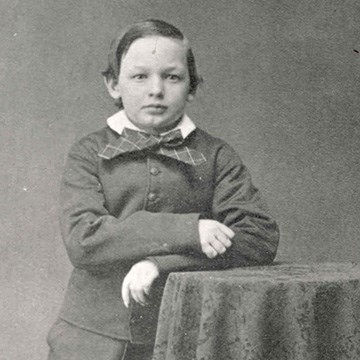Beginning of the End of Slavery
- John O’Brien

- Sep 21, 2023
- 2 min read
By John A. O'Brien
Washington, D.C.
Friday, September 22, 2023
Five days after the Union Army defeated the Confederates at Antietam Creek near Sharpsburg, Maryland, President Lincoln read his proposed Emancipation Proclamation to the cabinet. He had informed the nation in August, in his open letter to Horace Greeley that he would treat slavery in the manner that would best help win the war. Now he declared that emancipation in rebel territory was indispensable.

Lincoln startled his advisors when he said his emancipation plan was the result of a vow he made “that if God gave us the victory in the approaching battle, he would consider it an indication of Divine will, and that it was his duty to move forward in the cause of emancipation. It might be thought strange that I had in this way submitted the disposal of matters when the way was not clear to my mind what I should do. God had decided this question in favor of the slaves.” Prior to this meeting, Lincoln had not given any indication that this decision was so dependent on the Almighty. In July, he had agreed with William Seward that emancipation should await a military victory but had made no mention of God’s intervention.
Perhaps Lincoln was still pondering the importance of the faith implications of Greeley’s challenge to act more forcefully on slavery in his editorial titled “The Prayer of 20 Millions.” Most Americans in both north and south held deep religious beliefs. Perhaps it was Lincoln’s reflection as he wrote the undated “Meditation on the Divine Will” that led him to this profoundly spiritual connection with emancipation. The final copy of the Proclamation would carry this inspiration forward when he described the order as one “sincerely believed to be an act of justice, warranted by the Constitution, upon military necessity, I invoke the considerate judgment of mankind, and the gracious favor of Almighty God."
The preliminary Proclamation provided that on the first day of January 1863 all persons held as slaves within any state in rebellion against U.S. shall be forever free. Second, escaped slaves and those in territory occupied by forces of U.S. shall not be returned. And third, fugitive slaves will not be delivered up except for crime or claim of lawful owner under oath that he has not borne arms against government.
The announcement of the preliminary Proclamation prompted some of the heaviest political blows against the Republicans and the Lincoln Administration. Several governorships were turned for the Democrats and the Republican voting margin in Congress was diminished, though not lost. And most importantly, Kentucky and the border slave states remained loyal. Lincoln gambled on his sense of public opinion and the support of the army. Under the gracious providence of God that Lincoln sought to enlist, the effects of the Emancipation Proclamation proved decisive in saving the country.
References:
Allen Guelzo, Lincoln's Emancipation Proclamation: The End of Slavery in America. New York: Simon & Schuster, 2004.
Michael P. Johnson, "Book Review of Lincoln's Emancipation Proclamation: The End of Slavery in America." Journal of the Abraham Lincoln Association, Summer 2005.
Emancipation Proclamation text: https://www.archives.gov/exhibits/featured-documents/emancipation-proclamation.
"Meditation on the Divine Will," Collected Works of Abraham Lincoln, Vol. V, 403-4



Comments